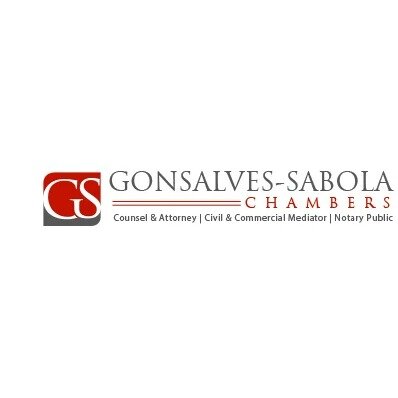Best Public-Private Partnerships (PPP) Lawyers in Bahamas
Share your needs with us, get contacted by law firms.
Free. Takes 2 min.
Or refine your search by selecting a city:
List of the best lawyers in Bahamas
About Public-Private Partnerships (PPP) Law in Bahamas
Public-Private Partnerships, commonly known as PPPs, are collaborative arrangements between government entities and private sector organizations designed to finance, build, and operate projects that serve the public interest. In the Bahamas, PPPs are increasingly used as a strategic approach to modernize public infrastructure, such as roads, ports, healthcare, and energy services, by leveraging private sector expertise, technology, and funding. The legal framework for PPPs in the Bahamas aims to ensure transparency, promote competitiveness, and protect public interests while enabling mutually beneficial relationships.
Why You May Need a Lawyer
Navigating the complexities of a PPP project in the Bahamas requires sound legal advice. Common scenarios in which individuals or organizations might need legal help include:
- Drafting, reviewing, or negotiating PPP contracts or agreements
- Understanding regulatory obligations and compliance requirements
- Structuring project finance and managing risk allocation
- Dispute resolution or mediation between public and private partners
- Advising on land acquisition, environmental regulations, or permitting
- Compliance with anti-corruption and transparency standards
- Protecting intellectual property and proprietary technologies used in PPP projects
- Ensuring local content and employment requirements are met
A PPP lawyer can guide you throughout the various project stages, from feasibility study and bid preparation to contract execution and operation, ensuring your interests are protected at every step.
Local Laws Overview
The Bahamas has established a legislative and policy environment tailored for public-private partnership projects. Here are some key aspects of local laws relevant to PPPs:
- PPP Legislation: The Public Procurement Act, 2021 and subsequent regulations provide the primary legal framework governing PPPs, including project selection, tendering, contract management, and monitoring.
- Procurement Procedures: Projects must adhere to transparent, competitive bidding processes with clear criteria for partner selection.
- Government Oversight: A dedicated PPP unit within the government evaluates proposals, provides oversight, and ensures compliance with laws and best practices.
- Contractual Safeguards: PPP agreements must detail risk allocation, payment mechanisms, timelines, dispute resolution, and performance benchmarks.
- Foreign Investment: While foreign entities can participate in PPPs, they must comply with Bahamian investment laws and may need to partner with local companies.
- Permits and Environmental Compliance: Projects often require specific permits, environmental impact assessments, and adherence to zoning laws.
- Tax and Incentives: The law provides for certain tax incentives and duty exemptions for qualifying PPP projects, subject to approval by government agencies.
Frequently Asked Questions
What is a Public-Private Partnership (PPP)?
A PPP is a collaborative venture between a government agency and a private sector partner to finance, develop, and operate a project or provide a service that benefits the public.
Are there specific laws regulating PPPs in the Bahamas?
Yes, the Public Procurement Act, 2021 and its regulations are the key legal instruments governing PPPs in the Bahamas, setting out processes and requirements for project implementation.
Who can participate in PPPs in the Bahamas?
Both local and international private sector entities can participate, subject to compliance with local investment laws and, sometimes, requirements to collaborate with Bahamian companies.
What types of projects qualify for PPP arrangements?
Common PPP projects include infrastructure such as roads, ports, airports, schools, hospitals, water facilities, and energy plants.
How are PPP partners selected?
Partners are usually chosen through a public, competitive bidding process managed by the government, with evaluation criteria based on qualifications, experience, and financial strength.
What are the typical risks in a PPP project?
Risks may include financing challenges, construction delays, regulatory changes, political uncertainty, and project performance risks. These should be clearly defined and allocated in the PPP contract.
Is government support available for PPP projects?
Yes, the government may provide support such as guarantees, subsidies, or tax incentives, depending on the project's nature and public benefit.
How long do PPP contracts typically last?
PPP agreements vary in duration but often range from 10 to 30 years, depending on the project's complexity, investment, and operational phase.
What happens if there is a dispute between PPP partners?
Dispute resolution mechanisms, typically arbitration or mediation, are specified in the PPP contract, with Bahamian law commonly governing the process.
Can a PPP contract be terminated early?
Yes, early termination is possible under specific circumstances such as breach of contract, insolvency, or public interest. The terms for termination and associated penalties are stipulated in the contract.
Additional Resources
For more information or clarification on PPPs, these local resources and organizations may be helpful:
- The Bahamas Ministry of Finance - PPP Unit
- Public Procurement Department of the Bahamas
- Bahamian Bar Association
- The Bahamas Investment Authority
- Bahamas Chamber of Commerce and Employers Confederation
- Local law firms with expertise in PPP projects and infrastructure development
Next Steps
If you are considering participating in a PPP project in the Bahamas or require legal advice concerning existing or prospective arrangements, the following steps can help guide your process:
- Evaluate your interest or eligibility to participate in a PPP initiative.
- Gather relevant project documentation or conceptual plans.
- Conduct preliminary research on the PPP legal requirements and sector-specific regulations.
- Consult with a local attorney specializing in PPP law and infrastructure projects to discuss your goals, obligations, and risks.
- Engage with relevant government agencies or PPP units to seek project opportunities or submit proposals.
- Ensure ongoing legal compliance and seek advice at each stage of project development and operation.
Securing professional legal assistance early in the process is essential to successfully navigating the legal, financial, and operational aspects of PPPs in the Bahamas.
Lawzana helps you find the best lawyers and law firms in Bahamas through a curated and pre-screened list of qualified legal professionals. Our platform offers rankings and detailed profiles of attorneys and law firms, allowing you to compare based on practice areas, including Public-Private Partnerships (PPP), experience, and client feedback.
Each profile includes a description of the firm's areas of practice, client reviews, team members and partners, year of establishment, spoken languages, office locations, contact information, social media presence, and any published articles or resources. Most firms on our platform speak English and are experienced in both local and international legal matters.
Get a quote from top-rated law firms in Bahamas — quickly, securely, and without unnecessary hassle.
Disclaimer:
The information provided on this page is for general informational purposes only and does not constitute legal advice. While we strive to ensure the accuracy and relevance of the content, legal information may change over time, and interpretations of the law can vary. You should always consult with a qualified legal professional for advice specific to your situation.
We disclaim all liability for actions taken or not taken based on the content of this page. If you believe any information is incorrect or outdated, please contact us, and we will review and update it where appropriate.
Browse public-private partnerships (ppp) law firms by city in Bahamas
Refine your search by selecting a city.

















